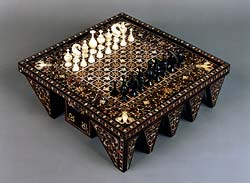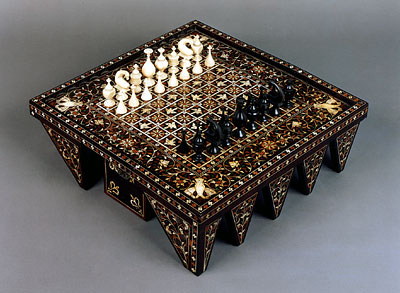Games historians classify chess as a war game, as distinguished from race games (such as pachisi or backgammon) and games of position (such as weiqi/go). Its moves refer explicitly to its origin as a war game: seizing a throne, regaining a throne, building an empire. A fundamental feature of modern chess, as well as its predecessors, is the crucial distinctions among the powers of the pieces, mandating perceptible differences in appearance and a means of distinguishing the two sides.
| War and Territory | 
|
||||||||||
|
Chess
A majority of chess historians agree that the game originated in
northern India sometime before 600, spread to Iran and then to Mesopotamia,
and reached Europe about the year 1000. As the rich complex of rules
of chess has been largely preserved over many eras and comparably
vast geographical distances, it represents an extraordinary phenomenon
in the history of Asian games.
|
Folding board for chess and draughts-type games |
||||||||||





